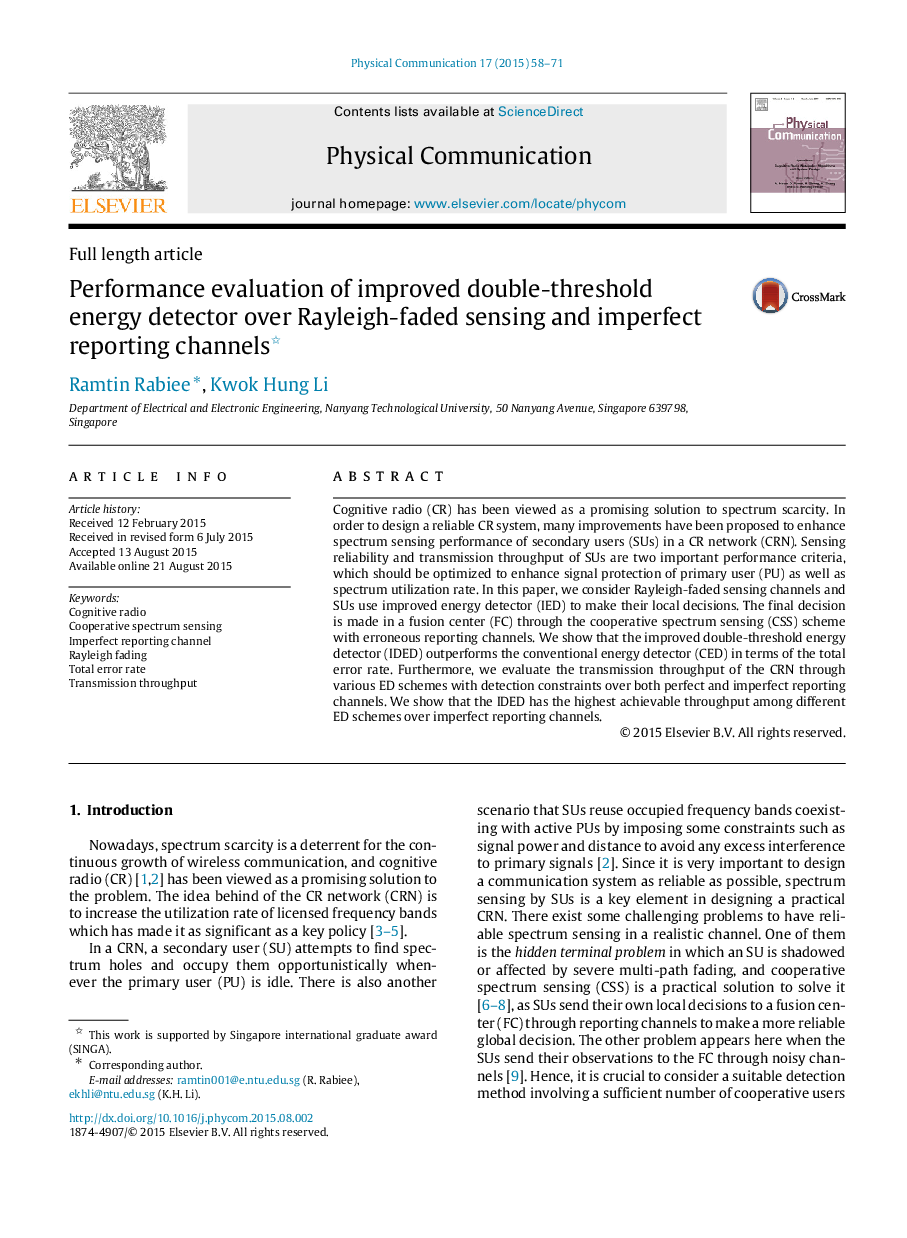| Article ID | Journal | Published Year | Pages | File Type |
|---|---|---|---|---|
| 465788 | Physical Communication | 2015 | 14 Pages |
Cognitive radio (CR) has been viewed as a promising solution to spectrum scarcity. In order to design a reliable CR system, many improvements have been proposed to enhance spectrum sensing performance of secondary users (SUs) in a CR network (CRN). Sensing reliability and transmission throughput of SUs are two important performance criteria, which should be optimized to enhance signal protection of primary user (PU) as well as spectrum utilization rate. In this paper, we consider Rayleigh-faded sensing channels and SUs use improved energy detector (IED) to make their local decisions. The final decision is made in a fusion center (FC) through the cooperative spectrum sensing (CSS) scheme with erroneous reporting channels. We show that the improved double-threshold energy detector (IDED) outperforms the conventional energy detector (CED) in terms of the total error rate. Furthermore, we evaluate the transmission throughput of the CRN through various ED schemes with detection constraints over both perfect and imperfect reporting channels. We show that the IDED has the highest achievable throughput among different ED schemes over imperfect reporting channels.
